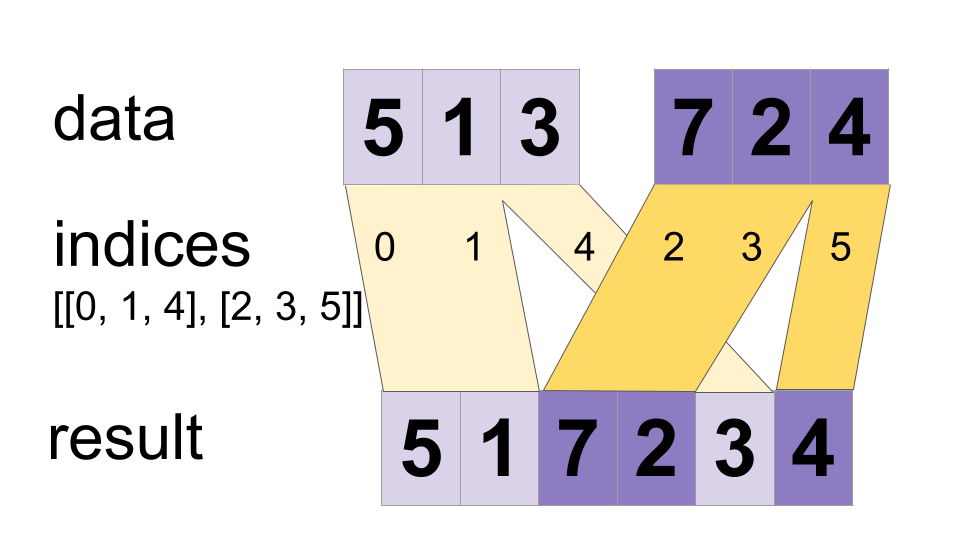tf.dynamic_stitch(
indices,
data,
name=None
)
Defined in generated file: tensorflow/python/ops/gen_data_flow_ops.py.
Interleave the values from the data tensors into a single tensor.
Builds a merged tensor such that
merged[indices[m][i, ..., j], ...] = data[m][i, ..., j, ...]
For example, if each indices[m] is scalar or vector, we have
# Scalar indices:
merged[indices[m], ...] = data[m][...]
# Vector indices:
merged[indices[m][i], ...] = data[m][i, ...]
Each data[i].shape must start with the corresponding indices[i].shape,
and the rest of data[i].shape must be constant w.r.t. i. That is, we
must have data[i].shape = indices[i].shape + constant. In terms of this
constant, the output shape is
merged.shape = [max(indices)] + constant
Values are merged in order, so if an index appears in both indices[m][i] and
indices[n][j] for (m,i) < (n,j) the slice data[n][j] will appear in the
merged result. If you do not need this guarantee, ParallelDynamicStitch might
perform better on some devices.
For example:
indices[0] = 6
indices[1] = [4, 1]
indices[2] = [[5, 2], [0, 3]]
data[0] = [61, 62]
data[1] = [[41, 42], [11, 12]]
data[2] = [[[51, 52], [21, 22]], [[1, 2], [31, 32]]]
merged = [[1, 2], [11, 12], [21, 22], [31, 32], [41, 42],
[51, 52], [61, 62]]
This method can be used to merge partitions created by dynamic_partition
as illustrated on the following example:
# Apply function (increments x_i) on elements for which a certain condition
# apply (x_i != -1 in this example).
x=tf.constant([0.1, -1., 5.2, 4.3, -1., 7.4])
condition_mask=tf.not_equal(x,tf.constant(-1.))
partitioned_data = tf.dynamic_partition(
x, tf.cast(condition_mask, tf.int32) , 2)
partitioned_data[1] = partitioned_data[1] + 1.0
condition_indices = tf.dynamic_partition(
tf.range(tf.shape(x)[0]), tf.cast(condition_mask, tf.int32) , 2)
x = tf.dynamic_stitch(condition_indices, partitioned_data)
# Here x=[1.1, -1., 6.2, 5.3, -1, 8.4], the -1. values remain
# unchanged.

Args:
indices: A list of at least 1Tensorobjects with typeint32.data: A list with the same length asindicesofTensorobjects with the same type.name: A name for the operation (optional).
Returns:
A Tensor. Has the same type as data.